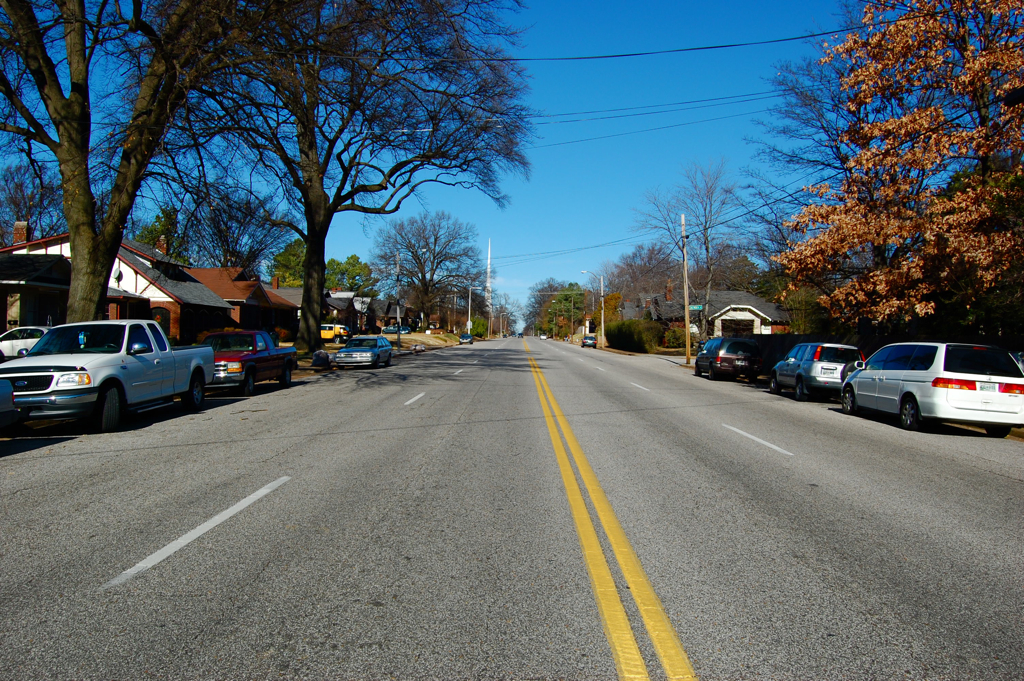This week on Talking Headways we’re joined by Michael Batty, Professor of Planning at the University College London.
We chat about his book The Computable City: Histories, Technologies, Stories, Predictions, which includes histories of computing, smart city critiques, what the discourse on AI should really be about, and discussions on the future of urban forms.
Scroll below the audio player for a partial edited transcript of our conversation, or click here for an unedited, AI-generated readout of the entire episode.
Jeff Wood: We have all this mapping and in the book you talk a lot about modeling too, and how early modeling efforts to try to understand transportation networks and try to understand cities and Vorhees’ idea that you couldn’t do a model without connecting transportation and land use. I’m wondering how that’s connected as well.
Michael Batty: Well, to some extent, in focusing on the kind of models that we build to understand cities, then land use and transportation are kind of key elements that I suppose we should probably think of cities as being looked at from the point of view of locations where things locate, where they’re grounded, and also the relationships between them, which are the networks. So typically, you know, where people live and where they work in terms of locations of land use and buildings and so on. And then of course the links between them, which are things like where people live and work, it’s the journey to work basically, or the links to any kind of different activity really.
So, and again, this is back to this standard model, if you like, in some sense, because you know, we’re talking there about location, what happens at certain places and also the networks that really service them. I mean, the networks in cities are a bit like the channels of energy really. You know, you can think of the transportation system as being the way energy is being distributed within the system.
Jeff Wood: We’re also seeing a massive convergence in, in layering of all these technologies together. The ones that have been invented, as you mention in the book, in the last 80 years. What does that mean for any future revolutions with people not really understanding how they work?
Also, I’m curious if it’s possible to have another Dark Age because we’ve layered all these things on top of each other. Is it possible for them to all disappear and then nobody knows how to get it back together again?
Michael Batty: There is a very good book written in 1909, I think, by C.S. Foster called The Machine Stops. This is a hundred years ago when he wrote the book, well, 120 years ago when he wrote the book. He envisaged a world where everybody is connected and machines have been built to connect everybody. Everybody lives at home or underground or something like that. People don’t move. Everything is sort of sustained. And of course, since the book is called The Machine Stops, what happens when the machine stops? What happens when you have a world like this? And in some senses it’s not so far fetched. I mean, we've got very serious changes in the way we use energy in modern society, and that could come through, well, it could come through climate change, for example.
We’re already seeing some evidence of that on a local scale, but it could come through climate change, then we could get this kind of collapse. And of course we’re continuing to build network upon network. There is no grand plan out there. Everything grows from the bottom up, basically, in a sense. And as the world gets more complex, the cities get more complex, then all of these possibilities, well, it’s hard to say whether they get more likely or not. We simply don’t know. Basically it’s part of this notion that we really don’t know what the next industrial revolution will be. They’re happening all the time. Of course, we are probably using the wrong terminology when we call it "industrial revolution."
They’re just technological revolutions which roll into each other. And of course one can paint a picture of how these systems actually could destroy themselves basically, or fall apart. It could be very rapid too. That’s the other thing. We don’t have any real sense of how rapid are these changes.
Jeff Wood: The main idea is that you believe that the future’s unpredictable, it’s not really something that you can predict or model or anything along those lines.
Michael Batty: Right. Absolutely. I mean that that’s another theme that runs through the book, really. It’s to do with the notion that the most unpredictable thing is this whole question about what comes next in terms of the next digital revolution, the next element of what we might loosely call a computable world basically, or "The Computable City."
We often use the optimistic language of saying it’s very difficult to predict, basically. Well, it’s impossible to predict. There’s some things we can predict, very routine things that we understand that work on cycles that relate to ourselves. And these things can be predicted, but technological inventions can’t be predicted, although that doesn’t stop us from trying to probe the future and see what might happen in that sense.
So if we sort of say, well, we can’t predict, we know that, you know, in a philosophical sense or logical sense, but nevertheless, we still need to try and second guess the future. That doesn’t absolve ourselves from the responsibility of trying to predict, although we know we can’t. That’s a paradox, that’s a dilemma, really, that modern society, well all societies, have had to live with and continue to live with.
Jeff Wood: I find it interesting from here in the US because we continue to build more road infrastructure, more infrastructure for cars, and we use these models that predict that you are gonna need this much more capacity. We just talked to Megan Kimble about her book, about widening highways in Texas and, you know, just the amount of modeling and the "we know better than you"-type of discussions that happen don’t make sense in some respects because the models in the past have said all this VMT is gonna be in this linear form up to the moon, whereas it goes flat in reality. And so we continue to use this as a reason to, basically, it’s a policy tool to put some kind of information or data or some sort of computing behind a policy that we’ve chosen as a society.
Michael Batty: Yeah, that’s right. Transportation is a good example. It’s very difficult to know what’s likely to happen next because we have this possibility that vehicles will be autonomous in some sense. And of course the whole thing surrounding the autonomous vehicle is very problematic in the sense that the degree of “intelligence,” in quotes, needed is potentially remarkable to actually ensure there is, you know, near certainty in terms of what the vehicles will do and so on. And the reason why we don’t have completely automated cars, I think, at the present time is largely because of these problems that can’t really be solved. We never, we don’t know how predictable the machine will be.
And that is quite problematic because it means that we can’t really forecast what life will be like in general in the not too distant future. So predictability runs through everything that we’re talking about, both the industrial revolutions and so on. You know, what happens next. And to some extent the computable world, well, the digital world, potentially might give us a handle. We always thought that computers would be able to be used to actually, you know, help us make predictions. But that goal is changing. I wouldn’t say it’s passing, but it’s changing. Our whole notion about what is predictable is changing in that sense, because some things would appear to be, you know, quite predictable that we never thought of before.
The weather, for example, is getting more predictable in some senses, both short term, you know, the high frequency weather as well as the long frequency, climate change. So there’s a whole range of issues pertaining to this whole predictability question that are very germane, really, to what I talk about in the book, things that are related to cities.






